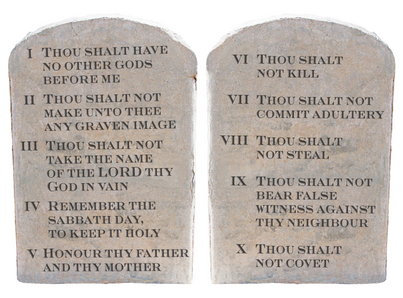I came across a truly profound quote as I thumbed through Facebook on my iPhone this morning.
“Legalistic remorse says, ‘I broke God’s rules,’ while real repentance says, ‘I broke God’s heart.’” – Tim Keller
The reason I think this is so insightful, is because I think it strikes to the core difference between religiosity and a genuine relationship with God.
And I also think it’s what keeps millions of people alienated from God, and maybe even prevents most Christians from experiencing an indescribable freedom they don’t even know exists.
Here’s an inadequate analogy for what I’m trying to say, but I think you’ll get my point.
Say you’re a high school student trying to do all the right things, obeying all the rules, a member of all the important school clubs, with a perfect attendance for three years straight.
You know the principal there, and you’ve respected him/her for as long as you’ve known them, but have never met or spoken to them directly.
And just as things are going great, you discover there’s a rule – specifically instituted and directed by this principal – that you’ve been unknowingly breaking for quite a while.
To most, this rule isn’t a big deal, but for you, breaking this particular rule has been the very thing that’s given you the extra boost you’ve needed to rise and achieve the academic success you’re enjoying.
Since you are an excellent student, you try very hard not to break this rule – because you simply want to do the right thing – but it’s very difficult because you’ve broken this rule for so long it’s almost become second nature to you.
Each time you catch yourself breaking this rule, you get frustrated with yourself – after all, you’re trying to be a good student, right?
And then you begin to doubt whether or not you’re actually a good student, or worse, you start justifying your actions and perhaps even become perturbed by a principal who would make such a rule that seems almost impossible for you not to break.
But what if that principal was your spouse, or Grandpa for those of you who aren’t married?
Of course, the personal connection alone doesn’t change the fact that the rule exists, or that it’s still nearly impossible for you to completely kick the habit of breaking this rule.
But because there is an actual relationship between you and the “rule maker” your perception of that rule becomes different somehow.
The same thought can/should be applied to obeying God.
I think we can all agree that we ALL fall short of the glory of God.
But we are called to constantly turn away from our sinful nature, and the idea is to sin less and less as we grow and mature.
The problem is I think many people go about this maturation process in the most difficult manner – namely, on their own, by their own willpower, work ethic, etc.
Now, I’m not saying this method can’t or doesn’t work, but it’s extremely difficult for the majority of us.
You see, God doesn’t simply want you and me to be great rule followers (see: Jesus’ interaction with the Pharisees, whom were actually stellar rule/law followers).
He wants a relationship.
He wants us to confide in Him, wants us to trust Him, and most of all, He wants us to rest in Him.
So the point of that great quote above is that if you develop a relationship with Him, the rules may not change, but how we view them does.
As our relationship grows and blossoms, we will still want to do the right thing, but instead of doing it because “it’s right,” we will tend to do the right things because by not doing so harms the One we’re in a relationship with.
So, how’s that easier than simply buckling down and just resolving to do better?
That’s simple.
Because then we are no longer relying on our own strength (which is fraught with human limitations), but instead we’re able to tap into His unending supply of power through the relationship.
This, among many other things, is an eye-opening contrast between religiosity and an authentic, beautiful relationship with God.
Simply put…serving Him out of beauty is infinitely easier and more effective (long term) than serving Him out of duty.





